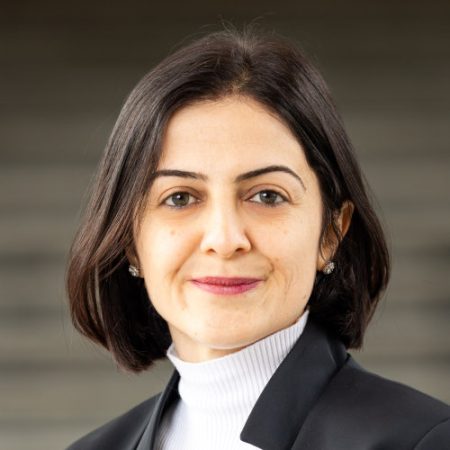Advancing Geospatial AI through Data-centric Research
The IEEE International Geoscience and Remote Sensing Symposium (IGARSS) 2025 will be held in Brisbane, Australia from August 3rd to August 8th. This year’s edition will host contributions from leading global research institutions, including six accepted papers and a community-contributed session by the Remote Sensing Image Analysis (RSiM) Group of BIFOLD led by Prof. Dr. Begüm Demir and Database Systems and Information Management (DIMA) Group led by BIFOLD co-director Prof. Dr. Markl.
The groups contributions reflect a strong focus on advancing geospatial artificial intelligence (AI) through methodological innovation, data-centric approaches, and international collaboration. The accepted papers address critical topics, such as explanation guided federated learning, redundancy-aware training of vision-language foundation models, refined BigEarthNet and the development of an AI assistant for digital twins of the Earth.
Besides the research paper contributions, the RSiM Group is organizing a session (CCS.32) on Data-Centric AI in Geoscience Applications. The session explores the growing need to prioritize data quality, management, and curation throughout the AI development lifecycle. With geospatial missions increasing in complexity, the session addresses how data-centric strategies can enhance the performance, reliability, and scalability of AI systems applied to large-scale Earth observation datasets.
Below is an overview of BIFOLD’s contributions:
- Communication-Efficient Federated Learning Based on Explanation-Guided Pruning for Remote Sensing Image Classification. Jonas Klotz, Barış Büyüktaş, Begüm Demir.
- reBEN: Refined BigEarthNet Dataset for Remote Sensing Image Analysis. Kai Norman Clasen, Leonard Hackel, Tom Burgert, Gencer Sumbul, Begüm Demir, Volker Markl.
- Redundancy-Aware Pretraining of Vision-Language Foundation Models in Remote Sensing. Mathis Jürgen Adler, Leonard Hackel, Gencer Sumbul, Begüm Demir.
- A Digital Assistant for Digital Twins of the Earth. Manolis Koubarakis, Sergios-Anestis Kefalidis, Konstantinos Plas, Myrto Tsokanaridou, Begum Demir, Genc Hoxha, Jakob Hackstein, Marco Corsi, Cristian Leoni, Giorgio Pasquali, Chiara Pratola, Simone Tilia, Nicolas Longepe.
- An Advanced Deep-Learning-Based Approach for Enhancing InSAR Parameters Estimation. Luca Dell'Amore, Giovanni Costa, Daniel Carcereri, Begüm Demir, Paola Rizzoli.
- Artificial Intelligence to Advance Earth Observation: A Review of Models, Recent Trends, and Pathways Forward. Devis Tuia, Konrad Schindler, Begüm Demir, Xiao Xiang Zhu, Mrinalini Kochupillai, Sašo Džeroski, Jan N. van Rijn, Holger H. Hoos, Fabio Del Frate, Mihai Datcu, Volker Markl, Bertrand Le Saux, Rochelle Schneider, Gustau Camps-Valls
- [Paper]
- Session: Data-centric Artificial Intelligence for Geospatial Applications
- Topic:This session continues the exploration of data-centric AI’s role in geoscience applications.
- Organization: Prof. Dr. Begüm Demir, Dr. Manil Maskey (NASA), Dr. Rajat Shinde (NASA)



